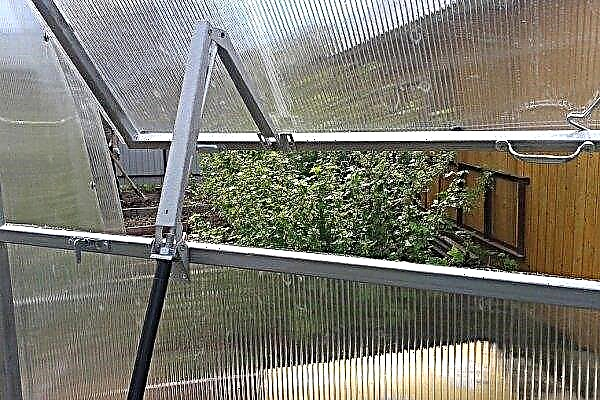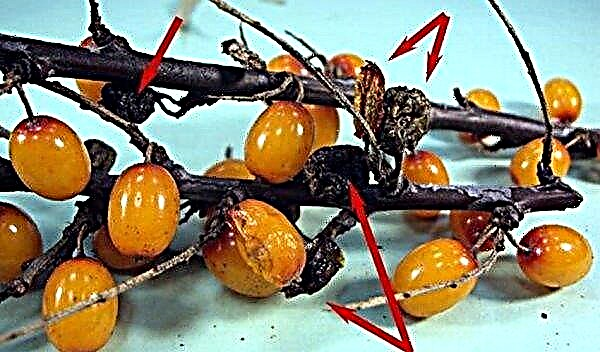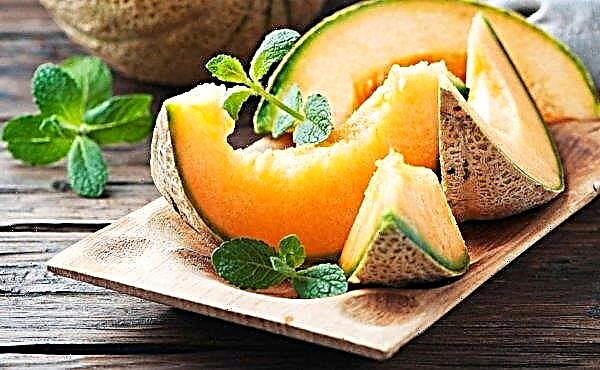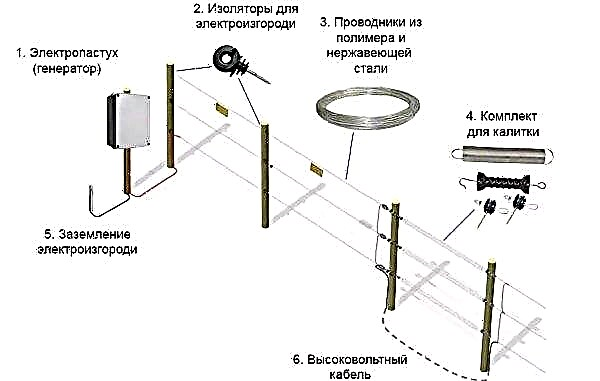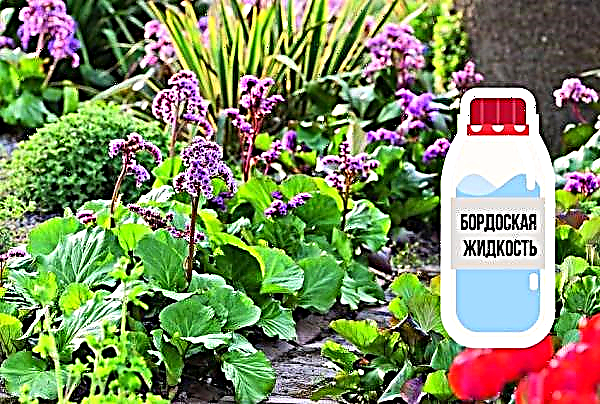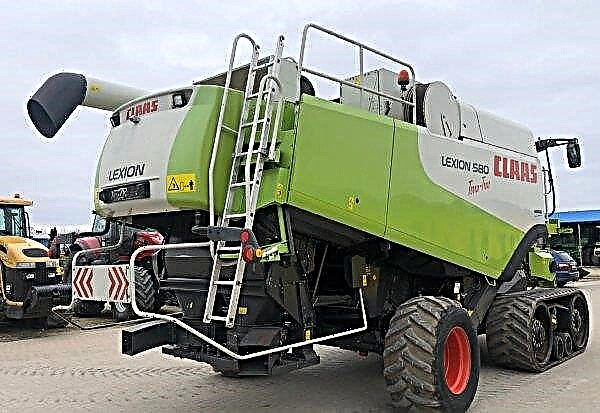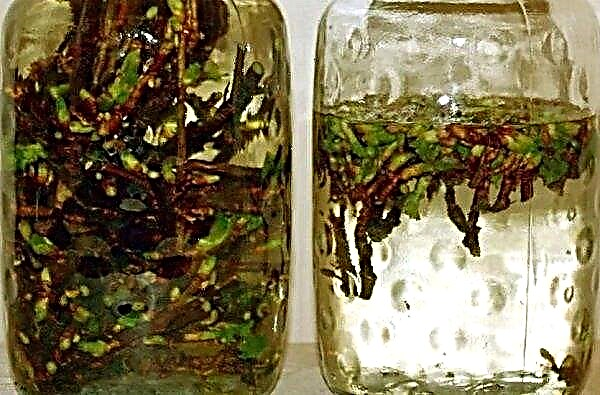When breeding ducks, it is important to know all the wisdom of caring for these birds. You also need to be prepared to warn, and possibly fight various problems. For example, many experienced poultry farmers know firsthand that adult ducks and even small ducklings can pluck feathers from each other, and this leads to considerable damage. In order for the birds not to spoil their relatives, one should know what measures should be taken to combat this scourge.
Reasons for aggressive behavior
The plucking of feathers is generally characteristic of poultry. Ducks, chickens and turkeys pinch each other, but ducklings especially like to do this. This is due to the fact that at the age of 2 months, grown-up babies are released on a walk. Adult ducks are not very happy with the replenishment, as they see competitors in the young growth, and can begin to pinch them.
Did you know? According to one version of the origin of phraseology “newspaper duck”, the reason for its appearance was the gluttony of ducks - of course, fictional. In 1815 journalist Robert Cornelissen laughed for the sake of wrote a note in the magazine that these birds without a twinge of conscience ate their relatives, chopped into pieces. The gullible public accepted the information at face value and in full discussion of this phenomenon. In the future, a terrible fact was refuted by the journalist himself.
And the thoughtless ducklings take an example from adults and also begin to pluck feathers. This inevitably leads to fights and aggression. According to experts, there are the following reasons for non-standard aggressive behavior:
According to experts, there are the following reasons for non-standard aggressive behavior:
- poor nutrition and insufficient drinking water;
- the amount of food exceeds the norm, that is, you overfeed the bird;
- the nutritional needs of ducks have changed;
- insufficient paddock area;
- lack of feeders and water tanks;
- the presence in the flock of aggressive by nature individuals.
Possible causes for individual breeds
There are times when there seems to be no reason for such behavior, and ducks still bite and pinch each other. It turns out that genetics is to blame. There are breeds of ducks that grow at a very fast pace, which means they need more substances to build muscle. Meet the representatives of such breeds.
Mullard ducks pluck feathers from each other
The crossing of the Peking duck and the Indochka resulted in the appearance of muleards. This is a very strong bird that has a strong immune system. But they may also have plumage problems. Mulard pull out feathers from relatives, as a result of which they appear bald patches and skin lesions.
Did you know? Ducks as poultry are very popular in China, where they grow up to 2 million individuals per year. But in Latin America, ducks are hardly eaten.
The reasons for this phenomenon in these ducks are, on the whole, the same as for all, but there are also peculiarities for this breed. The tail glands in ducks produce fat, and so the mullards have abnormalities in the functioning of these glands. Because of this, the birds pull their feathers first, and then the neighbors.
Indians pinch each other to the blood
Indoor ducks, or mute ducks, are also prone to aggression. They tear down feathers for all of the above reasons, but in addition, this breed is very sensitive to bright light and high humidity.
If nothing is done, then the consequences are very sad: the birds peck their relatives to the blood, and this leads to infection with various infections.
Why do ducklings pluck feathers
As for ducklings, their main causes of abnormal behavior are unbalanced nutrition and inappropriate conditions of detention. Toddlers are initially covered with down, and when the plumage process begins, then with a lack of nutrients, the chicks pluck down both feathers and feathers.
Sometimes you can watch how the ducklings even eat feathers, because they see in them the source of their vital components.
Also, the plucking may be due to the unsuccessful replanting of young animals to adults, as a result of which the struggle for survival begins in the poultry yard.
What could be the consequences
If you notice plumage problems in your ducks, then they probably began to pull feathers from each other.
Important! If you notice even a slight lack of feathers on the tail, wings or neck of your poultry, then be careful and ready to take decisive measures against aggressive individuals. The problem is easier to solve at the very beginning.
It is necessary to immediately take measures against such actions, otherwise the following consequences await the birds:
- Minor damage to the skin undergoes further peeling, after which a wound can be so deep that the bird loses consciousness from blood loss, and there is even a risk of death.
- Any infection can freely enter through open wounds, and a diseased individual can infect its relatives, which will lead to large losses.

What to do, folk remedies
Now we will consider what actions need to be taken if ducks or ducklings nibble, and then peck their brethren.
Resettlement of the aggressor
If you have established the instigators of such anomalous behavior, then catch them and place them in a separate place. Having isolated an aggressive bird, provide it with necessary foodstuffs and observe it. In most cases, an increased diet reduces the problem to nothing.
Only after the symptoms of aggression disappear can the duck be returned to the family.
Diet change
The wrong diet, as it turns out, is the most common reason for biting. Therefore, if you make the right changes to the menu, then there will not be a trace of the problem.
Here, the recommendations of specialists are as follows:
- During the period of intensive growth and development, it is best to give ducks a special food that is completely balanced and contains an increased portion of the necessary substances.
- In case of plucking feathers to blood, a special course is recommended, which contains protein feed, but only of animal origin (given once every 7 days).
- Powdered milk, bone or fishmeal can also be an excellent supplement to basic foods.
- Vegetables, especially zucchini and pumpkin, are limited, because such food can cause indigestion and lead to leaching of beneficial substances.
- Give a couple of times during the week 1-2 pieces of sprat or capelin.
- If possible, release the birds into the pond. They will find there the food that they need for growth.

Improving access to drinkers and feeders
Inspect your bird yard and watch the ducks. It is possible that you incorrectly calculated the number of drinking bowls and feeders. This can lead to fights between individuals, during which the ducks and peck each other.
Important! Supplements of arginine, methionine and cystine, manganese and sulfur can be used for prophylactic purposes with such actions of the bird. In addition, these substances stimulate feather growth.
Therefore, if such inconvenience is found for the bird, increase the number of access points in food and drink and make them convenient.
Humidity support
The duck feather is very sensitive to humidity. The thing is that, due to their structure, feathers deteriorate when it is too dry or too wet. The optimum humidity in the house is 60%. To ensure it, good ventilation or at least regular ventilation is required.
Corral increase
Enough space should be allocated for each bird in the pen, there should be no crowding. Poultry farmers recommend equipping a corral at the rate of 2 ducks per 1 sq. Km. m. Of course, these are ideal conditions, and they can not always be observed.
But if the reason for plucking and pecking lies precisely in the lack of space for each bird, then you will have to expand the space or reduce the number of livestock.
How to prevent in the future
Now that you know the possible causes of the feather plucking problem and how to avoid it, it’s enough to take preventative measures. Follow the rules of care, feeding and watering the bird, if necessary, give additional vitamins and minerals, this will help prevent the troubles associated with plucking feathers.
Important! An individual that has received even minor skin damage should be isolated into a clean cage. Wounds must be treated with an antiseptic until complete healing; you can use tar for this.
In addition, you can spray all ducks with an infusion of herbs that have a bitter taste, as well as apply the beak pruning method (for aggressive ducks). If you need to do just the last procedure, then it is better to entrust this to an experienced veterinarian.
If you notice that ducks peck their own and others' feathers, now you know that such behavior in a duck flock is not uncommon. Do not panic, but try to understand the reason for such actions. Make the necessary adjustments in nutrition, care or maintenance, and then such problems will quickly disappear.
Be attentive to your poultry, follow all the rules and regulations, and then any troubles will pass you by.

